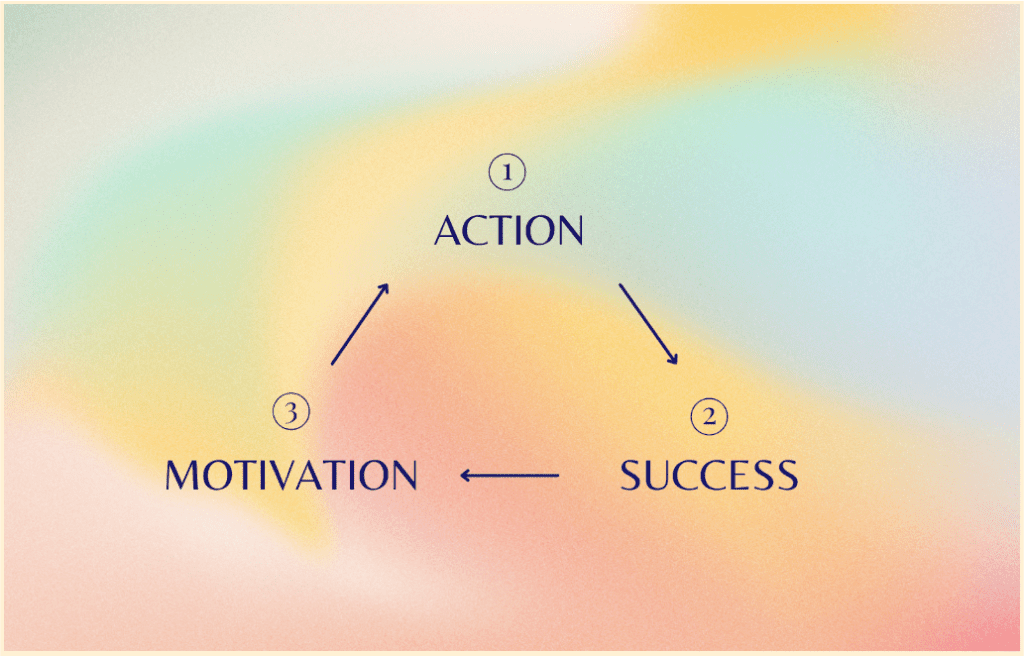
In Touch Introduces Penelope Case Management System
We are pleased to announce that our Penelope Case Management system is now LIVE.
Intern

Honor your feelings
Perhaps you’re putting off some work you have to do. You’re thinking, I’ll do it two hours from now, but then you realize it’s been two hours, five hours, six. This act of postponing tasks is called procrastination which may seem like bad time-management skills. However, psychology professor Tim Pychyl argues that procrastination is not a time-management problem, but a matter of emotion-management. It is the result of our brains responding to the anxiety, sadness, or languishing, especially during this pandemic, by seeking instant gratification. In other words, when we feel all these uncomfortable feelings, we seek activities that make us feel better in the moment such as binging a TV show or scrolling on our phone for memes, TikTok dances, or baking recipes. So, the next time you criticize your time-management skills, remember that improving how you respond to your daily tasks requires improving how you respond to your feelings.
In these times of change and ambiguity, you may feel discouraged, but it’s okay to feel like you have no motivation. Showing up in class, at work, or for others starts with showing up for yourself which means firstly acknowledging whatever you’re feeling. Honor your feelings by recognizing them—the frustrations, anger, or demotivation. And don’t beat yourself up for it. When you learn to embrace your internal environment, you learn to show up in and engage with your external environment with more energy, kindness, and acceptance.
Let go of the motivation mentality
Getting motivation has been a struggle for most people these days, but what exactly is motivation? And why is it so hard to pin down? Put simply, motivation is the driving force of our behavior, and perhaps it eludes us because we define it incorrectly. Showing up even when it’s difficult requires letting go of the motivation mentality, the mindset that you need that spark of motivation to start something and succeed. This mentality leaves you stuck even before beginning, but motivation doesn’t actually come before you start. Rather, motivation looks something like this:

Redefine motivation. Start doing your project or your workout routine (action) then you’ll feel good for starting it (success). Only after does motivation come because it is not the spark at the beginning, but the feeling of accomplishment that keeps you going.
Start small.
If the starting point is not motivation but action, then start somewhere. And start small. Starting small could be as simple as rolling out of bed even when you’re tired. It could also be writing just one sentence of your school assignment even when you’re demotivated. When you break up a task into smaller chunks, it becomes easier to manage and accomplish.
Don’t forget to celebrate the small wins. When you accomplish your task or one part of it, take a 10-minute break or eat a snack. Rewarding yourself for completing an action makes it more likely for you to repeat that behavior. That means a good way to start building a habit like eating healthy or exercising is making that habit attractive and satisfying enough for you to do it again.
Commit to your good habits.Just as you start with small actions and celebrate small successes, pay attention to the small cornerstones of your life: your habits. If you can identify habits of yours that don’t make you feel good about yourself, you may notice its effect on other areas in your life. For example, when you sleep late, you may feel too groggy to wake up early the next day, feel too exhausted to exercise, or too tired to start working. Unhealthy habits eventually add up to unhealthy lifestyles that don’t make you feel good. Conversely, healthy habits lead to healthy lifestyles that do wonders for your motivation, productivity, and happiness. So, commit to your good habits, the ones that give you a sense of peace or accomplishment like journaling, meditating, exercising, or staying connected with friends and family. Your habits are the building blocks of your life, so when you set and commit to good habits, you also improve the overall quality of your life.
Finding it hard to stick to your habits? Try the 2-day rule: Don’t skip a habit for two days in a row. Missing a habit for one day feels easily justifiable, but when it becomes a week or a month, you lose momentum and you may end up quitting. This rule allows you to take a break when you need it while still keeping you on track with your habit. Here’s what following the 2-day rule for a month would look like:

Commiting to your good habits means doing them even when it doesn’t feel exactly good in the moment. The motivation, the feeling of accomplishment, comes afterward and it will help you keep going.
Key Takeaways
If things gets too challenging, remember these four ways to get you going:
Remember that it’s perfectly valid to feel stuck, and it’s a big enough accomplishment that you show up even when it’s tough. Take each day one step at time, knowing that each step counts in the long-run.
References
Photo by Annie Pratt
Abdaal, A. (2020, July 1). Why motivation is a myth [Video]. Youtube. https://www.youtube.com/watch?v=kzAuvOr-YsM
Clear, J. (2018). Atomic habits: tiny changes, remarkable results: an easy & proven way to build good habits & break bad ones. Penguin Publishing Group. https://www.epublink.com/product/atomic-habits-tiny-changes-remarkable-results-by-james-clear/
D’Avella, M. (2019, September 4). The Two Day Rule [Video]. Youtube. https://www.youtube.com/watch?v=bfLHTLQZ5nc&t=194s
Grant, A. (2021, April 19). There’s a name for the blah you’re feeling: It’s called languishing. The New York Times. https://www.nytimes.com/2021/04/19/well/mind/covid-mental-health-languishing.html
Johnson, N. (2021, March 3). Are you procrastinating more? Blame the pandemic. National Geographic Society. https://www.nationalgeographic.com/science/article/are-you-procrastinating-more-blame-the-pandemic

We are pleased to announce that our Penelope Case Management system is now LIVE.

In Touch has specially designed the training to ensure takeaways included learning different tools that will help trainees provide a safe space for people to work out their stressors and learn the benefits of workplace counseling.

Kindly be advised that In Touch Community Services will be operating at a limited capacity during the holiday season (December 18 – January 1).

Keeping In Touch: (from left) In Touch Head of Psychological Services Unit Dr. Julian Montano, Mental Health Services Lead Myrtle Almando, US Embassy Medical Unit rep Mimi Thein, US EMU Regional Medical Officer Psychiatrist Andrea Ross, In Touch Executive Director Mike Calleja, In Touch Foreign Liaison Program relationship managers Marielle Mikkelsen and Daisy Pope-Brien.

Not “in the mood” to start exercising? Struggling to put in your hours at work? Dragging yourself to the next to-do on your list? Then you might be languishing. It’s the state between ill-being and well-being, the limbo-like aimlessness that pervades our days during the COVID-19 pandemic. One signifier of languishing is the loss of motivation in our day-to-day activities which many people are experiencing today. So, if you’re curious about how to show up even when you have zero motivation, here are four ways to do it:

For any immediate or in-the-moment emotional support, call our 24/7 CRISIS LINE. Our professionally trained responders are on standby to assist you.